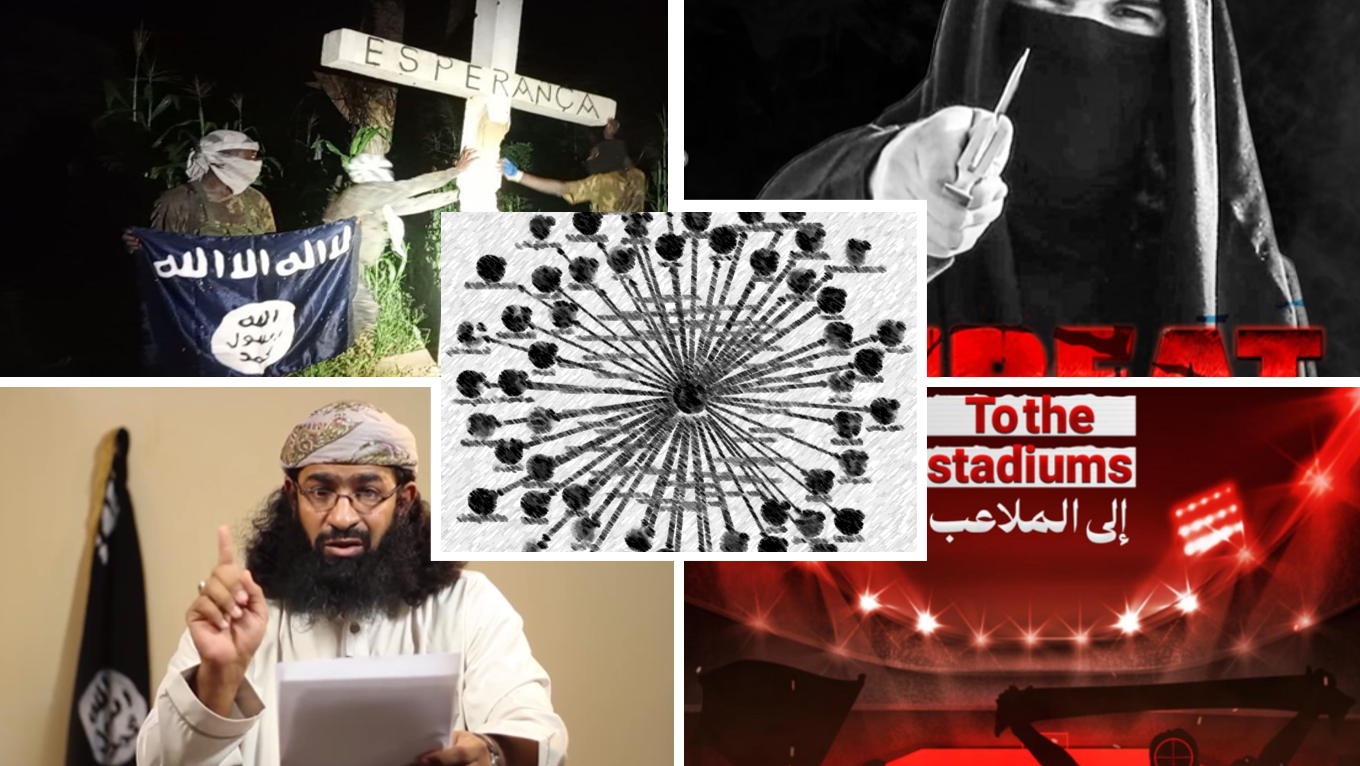This month’s In Focus analyzes the major terrorist attack involving massive shooting and IIDs that shook a Moscow suburb city. The Islamic State claimed responsibility for the attack with no affiliation to any province. However, it was suggested by different sources that IS Khorasan Province was involved. Before the attack, ISKP’s name surfaced in Russian reports of counterterrorist activities in different locations in Russia, including Russian territories in the Caucasus area. These recent events indicate the continuing expansion and growth of IS operational capabilities beyond regions where the organization traditionally maintains active insurgencies throughout the years. The attack coincided with the celebration of a decade since the declaration of the caliphate’s establishment in Syria and Iraq.
Al-Malahem Media announced the death of Khalid al-Batarfi, and Sa’ad bin Atef al-Awlaki’s promotion to Al-Qaeda in the Arabian Peninsula’s leader. Al-Batarfi was generally viewed as an uncharismatic leader, and while Al-Awlaki has very low media presence in AQ’s propaganda, he is perceived as an important military commander. Over the years, reports have indicated a strained relationship and rivalry between the two groups regarding AQAP’s operational policies. However, it is not anticipated that significant changes will occur under the new leadership, at least not in the near future.
In recent months, a significant resurgence of attacks and jihadist activities by IS in Mozambique was observed in the country’s northern Cabo Delgado Province. This violence has resulted in a growing number of internally displaced persons, instances of religious persecution against local Christian populations, and violent clashes with Mozambique’s Armed Defense Forces. These developments pose serious security concerns for the residents of Cabo Delgado, many already having fallen victim to mass displacement, longstanding political instability, and continuous food insecurity among other hardships. Furthermore, the recent activity of IS Mozambique indicates a resurgence of small-scale attacks in an area that could potentially pose a threat to liquid natural gas and mining projects.
This month’s Who’s Who? analyzes a Facebook profile belonging to an IS supporter residing in North Macedonia. The profile was discovered as a result of interactions with another Facebook profile that is involved in financial recruitment and funding for IS.
During our monitoring of instant messaging apps, we investigated two different phone numbers with American prefixes. Using the IRISTM system, both numbers were found to be participants in radical instant messaging app groups with a jihadist orientation: one number was found to be affiliated with groups that disseminate IS propaganda, while the other number is linked with a group affiliated with the Iranian Islamic Revolutionary Guard Corps and Lebanese Hezbollah.
Get the full report
If you would like to get the full report, leave your details in the form below.
Please be advised we can only send reports to validated government organizations.





